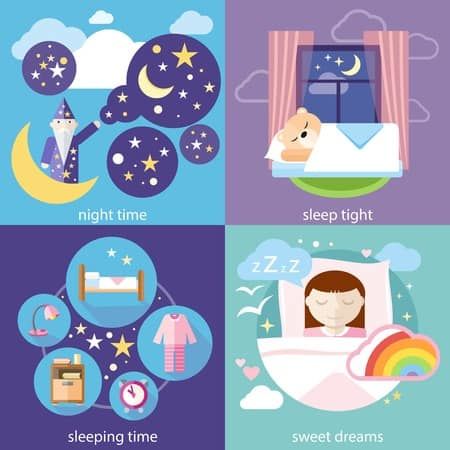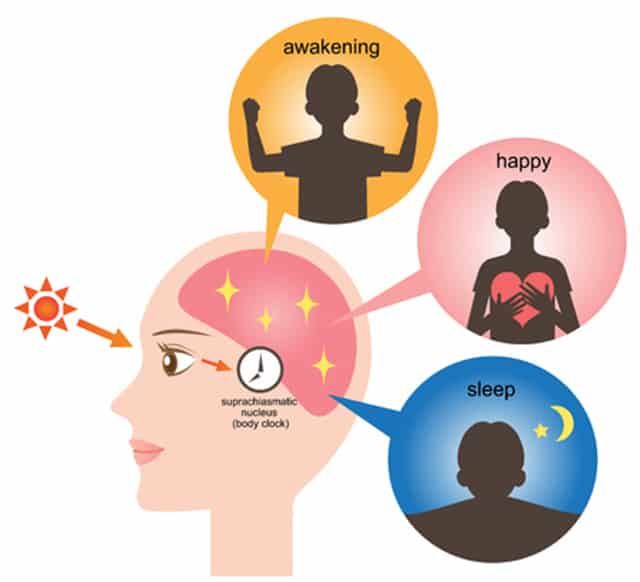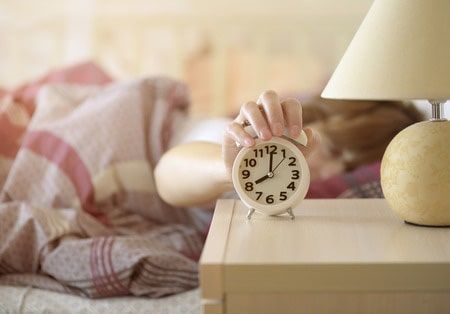Do you find yourself going to bed and waking up and random times each day? Do you wish that your body would just know when to go to bed and when to wake up without you having to force yourself with sleep aids and annoying alarm clocks? Well, your body wants to, believe me. But it can only do what you tell it to, or what your environment tells it to.
Proper rest and the right amount of sleep is crucial to your health and getting on a decent sleep schedule is the key to that. But in order to do that, you have to tap into your body’s Circadian Rhythm.
What is Circadian Rhythm?
Well, it’s a complex system of workings inside your mind and body. What is an example of circadian rhythm, you ask? Well, think of it as internal psychology, a clock in your brain that is programmed to know exactly when you should eat, sleep, wake, and even go to the bathroom.
But it’s really only as effective as you make it. That’s right, you control your rhythm with signals and your outside environment. Imagine this. You eat breakfast at the exact same time each day after waking. This repetitive act programs your mind and body into knowing when breakfast time is, and therefore, can tell you when you should eat again throughout the day. When you begin eating breakfast earlier or later than normal, you reset your body’s rhythm and can completely throw it off.
The same goes for sleep. If you go to bed at the same time each night, and then wake at the same each morning, you have set a sleep program inside your mind and body. Throw it off by staying up too late, too many times in a row, and you could affect your health.
How Does It Relate to Your Health?
It relates in so many ways, almost too many to list. But let’s touch on the most important ones. To know how it affects your health, you have to know what are circadian rhythms controlled by. Or rather, what hormone controls it.
The Adrenocorticotropic Hormone controls this rhythm by working with the melatonin levels in your body. When your melatonin is high, the Adrenocorticotropic Hormone goes low and vice versa. This behaviour can be found in plants, as well.
Next, it looks at your body’s natural habit and daily routine, setting a clock of sorts based on that. Then, the rhythm is controlled by outside factors such as light, technology, and weather.
So, when those factors come together and throw off your clock, you begin to experience health issues such as insomnia (which present its own related health issues), obesity, neurological problems, and even poor heart health as your body fights to stay healthy.
So it’s important to stay on a good rhythm and make sure you’re getting the right amount of sleep for your age range. For most adults, the range is anywhere from 7-8 hours per night. If you’re getting less than this because you’re staying up too late but waking at the same time, then consider letting yourself sleep in or even changing your circadian rhythm.
How Can You Change Your Circadian Rhythm?
It’s definitely not an easy task, but also not impossible. Often, as adults, physiological processes affect our daily routines. But when things present in our lives such as a sleep disorder, it creates a domino effect for everything else.
As humans, we’re prone to the desire for more. We load ourselves up with tasks and responsibilities and often our sleep in traded in favor of it. But you should never compromise your sleep health for anything.
But if you do find your circadian rhythm to be off, try going to bed 15 minutes early each night until you reset your brain to go to bed at a reasonable hour. In the mornings, try and avoid snoozing the alarm and wake up with the sun. The natural light will reprogram your body to know when it should be waking.
Living Pure – Luxury Sleep Mask
Try having your last meal at the same time each day, and no closer than 3 hours before bedtime. If you follow these few simple rules, you should be able to adjust your body clock in no time. If you really need a push, consider getting a good sleep mask to block out the outside lights and quiet your mind.
You may want to read: Sleep Drive and Body Clock
Remember:
- go to bed 15 minutes early
- wake with the sun
- no eating before bed.
Conclusion
So, that about covers it. Now, do you have a better understanding of what circadian rhythm is and how is crucial to your body’s mental and physical health? Try and stay on a clock, but if you find yourself falling off, just put in place some of the tips we talked about. And if you have any questions or some tips of your own to add, feel free to comment and share below!





